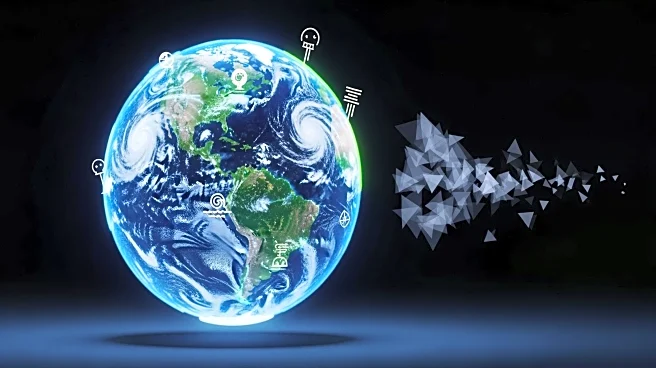What's Happening?
Climate Central, a nonprofit organization, has redeveloped a database tracking billion-dollar weather and climate disasters in the U.S., following the Trump administration's decision to cut the National
Oceanic and Atmospheric Administration (NOAA) program responsible for this data. The first half of 2025 has been recorded as the costliest period for such disasters, with 14 events exceeding $1 billion in damages. The January wildfires in Los Angeles alone caused over $61 billion in damage, marking them as the most expensive wildfire event on record. The database, originally managed by NOAA, was discontinued due to concerns over its cost estimation methods and perceived lack of decisional purpose. Climate Central's initiative reflects a growing trend of nonprofit organizations stepping in to continue federal projects affected by budget cuts.
Why It's Important?
The revival of the billion-dollar disaster database by Climate Central is significant as it provides crucial data on the escalating costs of extreme weather events, which are increasingly frequent and intense due to climate change. This information is vital for policymakers and stakeholders to make informed decisions regarding disaster funding and climate adaptation strategies. The discontinuation of the NOAA program highlights the political challenges faced by climate science under the Trump administration, which has been criticized for undermining efforts to address climate change. By maintaining this database, Climate Central ensures that the public and decision-makers have access to essential data that can influence environmental policy and resource allocation.
What's Next?
The continuation of the database by Climate Central may prompt further involvement from other nonprofit organizations and scientific communities to fill gaps left by federal budget cuts. Senate Democrats have introduced legislation to mandate NOAA to publish and update the dataset biannually, although its passage is uncertain in the Republican-controlled Senate. The ongoing efforts by nonprofits to preserve climate data could lead to increased collaboration among scientific groups to provide comprehensive climate assessments, potentially influencing future policy changes and public awareness campaigns.
Beyond the Headlines
The decision by Climate Central to take over the database underscores the ethical responsibility of scientific communities to ensure transparency and accessibility of climate data. This move may inspire similar initiatives to safeguard other critical environmental datasets, fostering a culture of resilience and proactive engagement in climate science. The broader implications include potential shifts in public perception and policy priorities as more organizations advocate for climate action and accountability.









